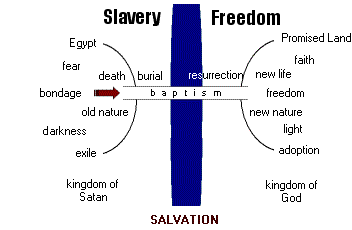|
The exodus from Egypt (i.e., metziat mitzrayim: יציאת מצרים) is perhaps the most fundamental event of Jewish history; it is "the" miracle of the Torah. In addition to being commemorated every year during Passover (Exod. 12:24-27; Num. 9:2-3; Deut. 16:1), it is explicitly mentioned in the first of the Ten Commandments (Exod. 20:2), and it is recalled every Sabbath (Deut. 5:12-15). The festivals of Shavuot (Pentecost) and Sukkot (Tabernacles) likewise derive from it (the former recalling the giving of the Torah at Sinai and the latter recalling God's care as the Exodus generation journeyed from Egypt to the Promised Land), as does the Season of Teshuvah (repentance) that culminates in Yom Kippur (the Day of Atonement). Indeed, nearly every commandment of the Torah (including the laws of the Tabernacle and the sacrificial system) may be traced back to the great story of the Exodus, and in some ways, the entire Bible is an extended interpretation of its significance. Most important of all, the Exodus both prefigures and exemplifies the work of redemption given through the sacrificial life of Yeshua the Messiah, the true King of the Jews and the blessed Lamb of God...
The deeper meaning of exile concerns blindness of the divine presence. The worst kind of exile is not to know that you are lost, away from home, in need of redemption... That is why Egypt (i.e., Mitzraim) is called metzar yam - a "narrow strait." Egypt represents bondage and death in this world, and the exodus represents salvation and freedom. God splits the sea and we cross over from death to life. Since Torah represents awareness of God's truth, Israel was led into a place of difficulty to learn and receive revelation (Gen. 46:1-7). Out of the depths of darkness God's voice would call his people forth. Likewise we understand our "blessed fault," the trouble that moves us to cry out for God's miracle in Yeshua... Indeed the New Testament states that Yeshua "appeared in glory and spoke of his exodus (τὴν ἔξοδον αὐτου) which he would accomplish at Jerusalem" (Luke 9:31).
 |
Hebrew Lesson
Exodus 12:2 reading (click):
|




